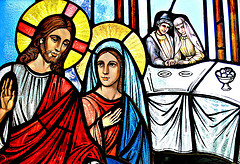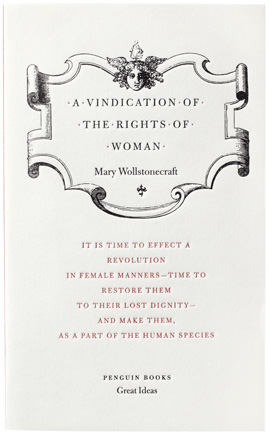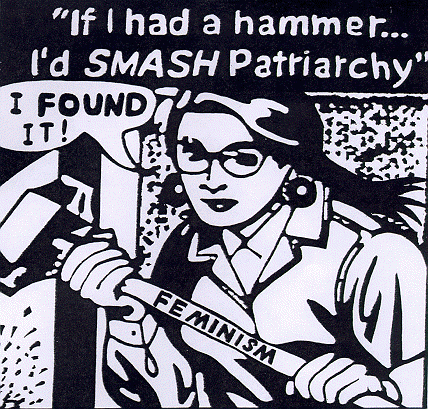 Over at the God’s Politics blog, Adam Ericksen revives the conversation about whether or not Jesus was a feminist. It’s a thing that progressives like to talk about from time to time, and was relatively common for Christian feminist theologians and biblical scholars to assert in the 1970s and 1980s.
Over at the God’s Politics blog, Adam Ericksen revives the conversation about whether or not Jesus was a feminist. It’s a thing that progressives like to talk about from time to time, and was relatively common for Christian feminist theologians and biblical scholars to assert in the 1970s and 1980s.
I don’t see what difference it makes. In fact, I think it’s a problem.
To be clear, I don’t actually disagree with any of the four reasons Adam gives for why Jesus is his favorite feminist. They are:
- Jesus challenged the conventional patriarchy of his culture. Jesus depended upon the ministry of women and he wasn’t ashamed of receiving their ministry in public.
- Jesus redefined the ways humans relate to one another by receiving cultural outcasts into his community.
- Jesus broke the conventional boundaries of his culture by including women as teachers and disciples.
- Jesus didn’t go against his Jewish faith by including women as full members of his community. Rather, he lived by a specific strand from within his Jewish faith.
True, as far as we know. Important points, all. Things to celebrate, for sure.
Adam even includes a footnote appropriately acknowledging the limits of any claim about Jesus being a feminist:
Of course, Jesus was not part of the modern political movement we call feminism, but he did challenge the patriarchy of his day and embraced women as full members of his new community. Thus, Jesus opened the door for the modern feminist movement.
Sigh. That last point is where he loses me, and where I start to wonder why progressive Christians are still so interested in claiming Jesus’ feminism.

See, I don’t think we need it. And, I think that it belies the truth and troubled misogyny of the Christian tradition over all the centuries between Jesus and, say, Mary Wollstonecraft or Valerie Saiving.
Additionally, this gives credit for feminism to an ancient man, and it makes possible the anti-semitism of which Christian feminists have already stood accused of when making such claims. I know that Adam tries to ward off this claim in his fourth point, but I don’t know that it’s enough. The implication is still out there that the (Jewish) world was so terrible and patriarchal until this new feminist Jesus came along and made it better. It too easily plays into the already-present supersessionist tendencies of Christianity more broadly, and I find that deeply problematic.
In a recent paper on “Anti-Judaism in Christian Feminist Theology,” Caitlyn Duehren at the Boston College Center for Christian-Jewish Learning discusses this issue, and considers at length
“the complexity of ancient Judaism and the early Jesus movement in an effort to recover the liberative tendencies inherent in the Jewish tradition as a means of understanding more fully the view of women presented in Jesus and the early Jesus movement.”
In short, there are aspects of Jesus’ Jewish tradition that made his work with and for women possible, as Adam notes in his fourth point above. But in a zeal for casting Jesus as a renegade liberator, Christian feminism has tended to throw Judaism under the patriarchal bus.
It’s a political move to assign the label of feminist to someone who hasn’t claimed it, let alone someone long dead. More importantly, I just keep wondering about why progressive Christians seem to have this recurring need to claim Jesus as one of us. Can’t we let him be whatever he was? Understand him in his context, take whatever liberating good news we can from the story, and not try to anachronistically fit him into our agenda?
And let’s talk about the women who made modern feminism possible. Generations of them in the Christian tradition that this Jesus inspired: early women apostles working to spread Jesus’ message of grace and justice, women toiling as priests in a fledgling church that eventually saw fit to exclude them from that work, medieval women directly experiencing God in powerful mystical visions, political women arguing for equality on the basis of a patriarchal bible to an all-male clergy, and radical women constructing theologies that finally included women’s experiences of being human, and sometimes even called for an exodus from this thing called patriarchy.
These are my favorite feminists.












